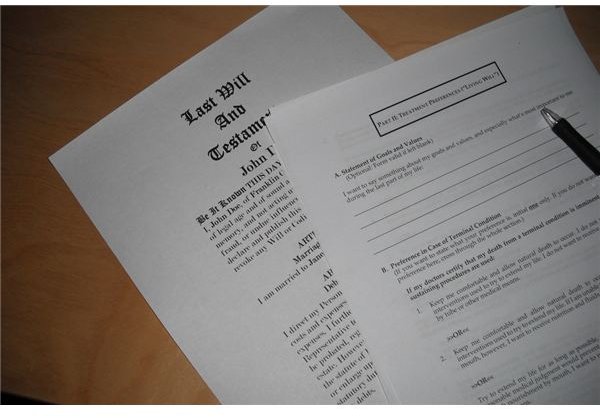How Long Does Probate Take? What Are The Real Costs? Monetary And Beyond...
In my life insurance practice, I work closely with an estate planning attorney. While I am not an attorney, I’ve learned quite a bit about probate. The following article discusses specifics of Michigan probate law, which is where I work, but the general gist of how probate works is similar in most states. Because probate laws and probate court costs and procedures do differ from state to state, seek the advice of a qualified probate/estate planning attorney in the state and county of your residence rather than assuming that this is exactly the same process in your home state.
What is probate?
In the year of 1463, “PROBATE” was defined as the “official proving of a will.” Sounds simple, but if you’ve ever been involved in the
process, you probably think differently.
Let’s talk purely monetary costs. First, to open an estate, there is a filing fee of $150. Then, a death notice to creditors will be published. Cost: 35-75$. You’ll then pay a probate inventory fee. The amount of that fee is based upon a sliding scale derived from the value of the estate. This can range from a low of five dollars to a high of $1,487.50.
If you’re handling the probate administration yourself, you’ll continue on. However, if you retain an attorney to handle the work for you, you’ll likely be paying him/her on an hourly basis. Probate work is typically charged at $175/hour to $350/hour. Simple probate cases are typically billed at the lower end of the hourly pay scale with the total cost falling in the $2,000 to $5,000 range. Lengthy, contested probate cases are typically billed at the higher end of the hourly pay scale and can cost tens of thousands of dollars.
image: Last Will and Testament from Flickr by Ken Mayer
Thus far we’ve addressed only the monetary costs. Let’s factor in other types of costs, like time:
How long does probate take?
(1) The cost of time: Under Michigan law, most probate cases must be open for a minimum of five months. More typical is one to two years.
(2) The cost of publicity: Beyond pure dollars, there is the publicity or non-privacy cost for a family. Once a case goes to probate, the details of the case become public record, such as the names and addresses of the heirs, account numbers and amounts, etc. Contrast this to a trust where details are kept private.
(3) The cost of stress: Relationships are often strained with the death of a family member. The probate process, duration of the process, details of the process, and cost of the process all have the potential to create great stress amongst family members, whether there is a lot or a little at stake.
Furthermore, most folks don’t realize that probate matters may affect us while we are still alive. You don’t have to pass away to be involved in probate. There are cases of “lifetime probate”. If you haven’t created adequate financial and medical powers of attorney, and then become incapacitated, probate court guardianship and conservatorship proceedings will likely become necessary.
Does a will eliminate probate?
Can having a will help you to avoid probate completely? No. The use of a will allows an individual to name the person who will administer his or her affairs after death, and to provide specifics regarding distributions of assets. As such, it is certainly better to prepare a will than to do nothing, since doing nothing results in the laws of your state determining who will administer your estate and to whom your assets will be distributed. However, contrary to popular belief, wills do not avoid probate. In fact, the use of a will in the absence of an accompanying trust will insure probate. Read more here for discussions of living wills etc.
So, what can you do to avoid probate? If you’d like your wishes carried out concisely, privately and in the way that you (not the state) directs, consult with a knowledgeable estate planning attorney about the creation of a comprehensive estate plan, which will usually include a living trust, for you and your family. The greatest gift you can give your family is the certainty of an estate plan that directs how your financial affairs and medical care will be handled when you die and if you become incapacitated. Moreover, if you do this, you insure that your family will not have to suffer from the costs, stresses and worry about how long probate takes - the time loss that most often results from the probate process.
